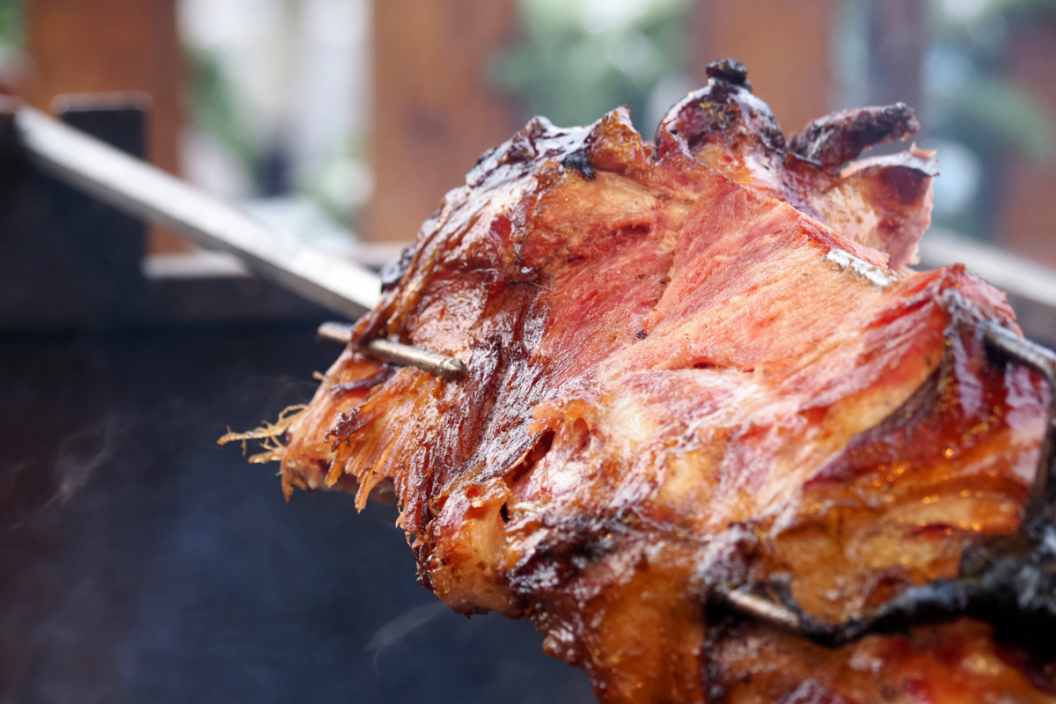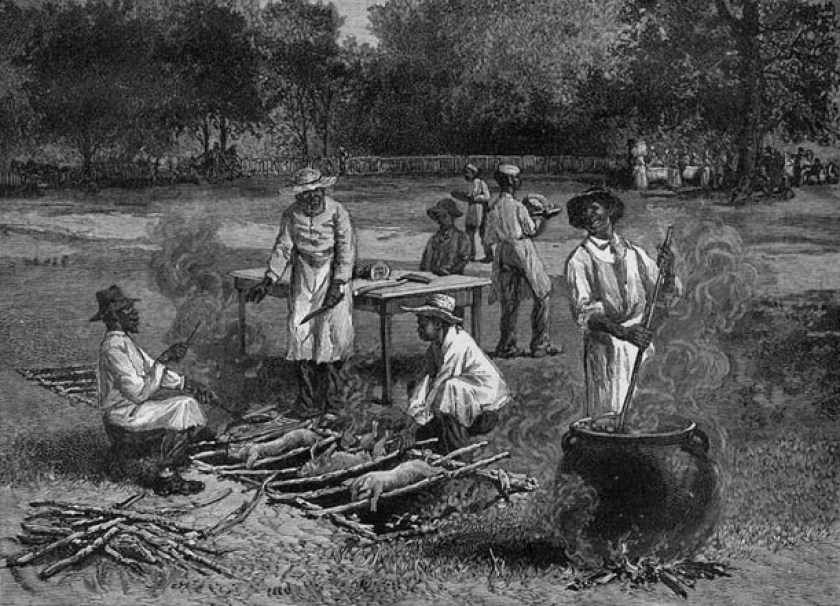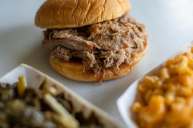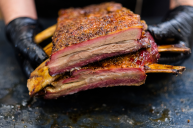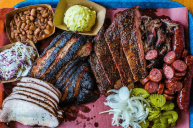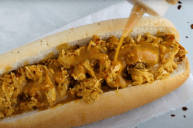Modern barbecue lovers are accustomed to rolling up to a BBQ joint, choosing between pulled pork or brisket, and digging into a messy, flavorful meal. Whether you live in Memphis, Birmingham, or Charleston, you probably know which barbecue spot has the finger-lickin-good spare ribs with the tangy sauce.
What you may not have considered is how barbecue came to be what it is today. This beloved food group has come a long way from its creation. One of the biggest developments in its history is that BBQ started off using entire animals, a method called whole hog BBQ.
In a recent seminar featuring barbecue experts John Shelton Reed and Adrian Miller, the two discussed the evolution of barbecue and its roots. Adrian Miller, author of Black Smoke: African Americans and the United States of Barbecue, explained that barbecue's roots are in Native American culture.
As expressed by Miller, "My research indicates that barbecue has a Native American foundation. In time, European colonizers and enslaved West Africans added their meat smoking and seasoning techniques, and that put us on the road to southern pit barbecue."
The BBQ expert went on to show how the history of barbecue known by the general public has large gaps that leave out essential players and parts of the story.
"Barbecue's lost history includes a diminished role for both indigenous cooks and African American cooks. With indigenous cooks, we've lost sight of how key they were to laying a foundation for barbecue with the various ways that they smoked meat. We've also lost sight of how enslaved African Americans were barbecue's 'go to' cooks for centuries because traditional barbecue is so labor-intensive. After Emancipation, African Americans were barbecue's effective ambassadors. Many were recruited and put on boat, stagecoaches, and trains in order to bring a taste of authentic southern barbecue to every corner of the nation."
Although many of us enjoy a plate of pulled pork or Texas-style brisket, few of us realize the checkered history of this popular food. Without indigenous cooks and enslaved African Americans, barbecue would never have become what it is today.
Miller also noted that the original style of BBQ, whole hog, was special for its ability to unite people. Since the pitmaster cooked an entire animal, you needed a large number of people to consume it, so barbecue was an inherently community-based style of cooking. This method of cooking grew popular in the South and on plantations, where slaves cooked whole animals to feed the many people on the plantation.
BBQ in Today's World
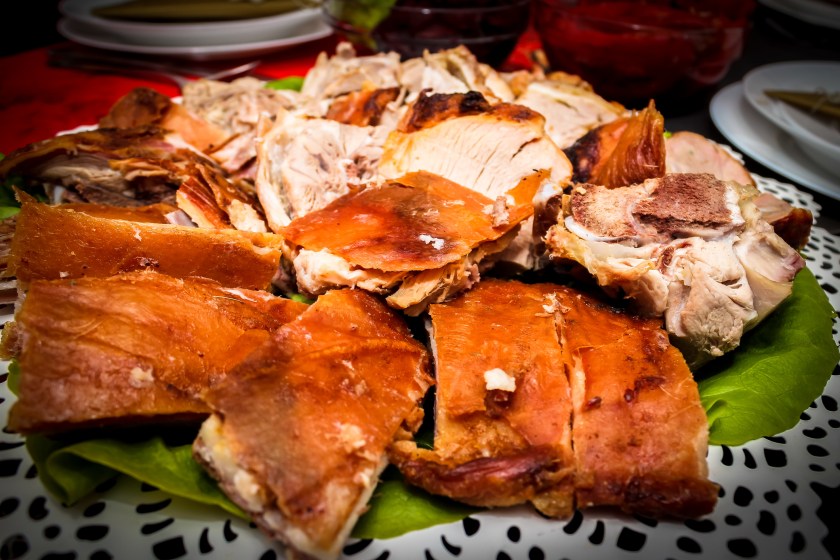
Getty Images/Brajcev
Although barbecue has been around for centuries, its original cooking methods are rarely used in the modern world. As Miller explains, "Very few people today cook barbecue as it was traditionally done in the 1700s and 1800s which is cooking whole animals—cows, goats, sheep, and pigs—over a trench filled with hardwood burning coals. While the meat cooked, it was basted with a sauce of vinegar and red pepper."
One of the most influential moments in the history of barbecue was when a shift from rural cooking to urban cooking occurred, leading to the use of smaller cuts of BBQ meat like we're used to today.
Miller says, "The shift to smaller cuts of meat sparked an age of barbecue innovation. Barbecue cooks focused on meats that reflected local dining traditions, added side dishes and beverages, and regional barbecue styles were born."
In this way, BBQ slowly developed into the versatile and beloved cooking style it is today, with its countless number of barbecue sauces, sides and variations.
The Oldest Form of BBQ
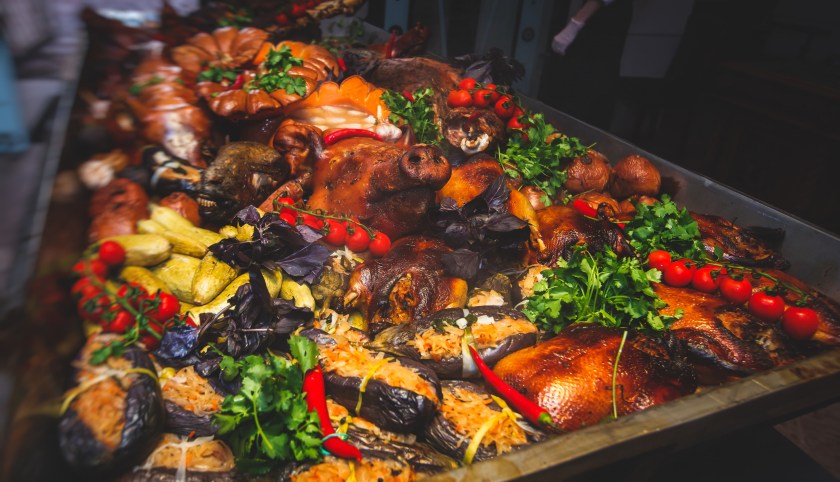
Despite the shift to smaller servings of BBQ and its evolution into different regional styles, the tradition of whole hog barbecue has been passed down through generations and remains the oldest continuous form of barbecue in the United States.
This regional and historical barbecue style is still prevalent in the South and Southeast, throughout Tennessee, North Carolina and South Carolina, where there are a number of whole hog barbecue restaurants. These are often run by pitmasters who learned the style through family tradition.
As explained by Pat Martin, who runs a chain of whole hog barbecue restaurants, the pitmaster must evenly cook the main sources of meat of the hog, which can take 12 to 24 hours. Because of its difficulty and cooking time, whole hog BBQ isn't a hobby one picks up on a whim.
Although whole hog barbecue remains prevalent in certain states, there are only a few dozen whole hog barbecue restaurants throughout the country, run by pitmasters passionate about preserving the old south tradition.
Despite the inherent pleasure of digging into a delicious plate of ribs or smoked brisket, this delectable food group wouldn't exist without those who came before us. Native Americans and enslaved Africans were the first pitmasters, and their stories live on in the tradition of whole hog BBQ.
Where to Enjoy Whole Hog BBQ in the South
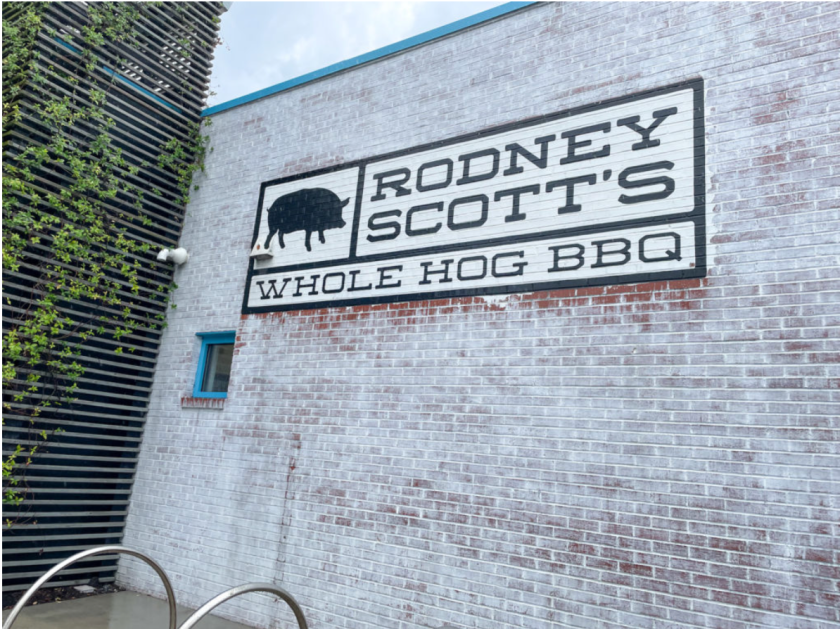
Lyndsay Burginger
As rare as whole hog BBQ is, there are a number of restaurants around the country where you can try this traditional cooking style. Probably the most famous whole hog BBQ restaurant is pitmaster Rodney Scott's restaurant Rodney Scott's BBQ in Charleston, South Carolina. The Scott family also runs Scott's Bar-B-Que in Hemingway, South Carolina.
For those in North Carolina, the Jones family is the mainstay of Whole Hog BBQ. Whether you visit Sam Jones BBQ in Raleigh and Greenville or Skylight Inn in Ayden, you'll be experiencing whole hog BBQ from a family of pitmasters who have passed down the tradition from generation to generation.
Another delicious option is Martin's Bar-B-Que joint, which can be found in a number of locations across Tennessee, Alabama, South Carolina and Kentucky. This chain is founded by whole hog aficionado Pat Martin, who fell in love with the traditional method in the tiny town of Henderson, Tennessee. No matter where you go to try whole hog BBQ, you'll be experiencing a barbecue method full of history and tradition.
This post was originally published on July 20, 2021.
